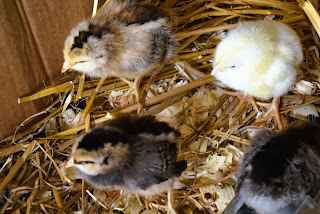I swear I'm going to SCREAM the next time a student tells me she didn't like a reading assignment because it's too long. If the server put an extra scoop of ice cream on your sundae, would you complain about getting too much of a good thing? If a visit to a national park overloaded your senses, would you gripe about being intoxicated by too much beauty? Why, then, complain if a really lively, informative, thought-provoking article provides more good stuff than you can squeeze into a life crowded with so much doomscrolling and video gaming?
It's not even a difficult text--"Stone Skipping is a Lost Art. Kurt Steiner Wants the World to Find It," an excellent piece from Outside magazine by Sean Williams (click here for a fun read, and don't neglect the jaw-dropping videos of stones flying across vast lengths of water in apparent defiance of the laws of physics). Several students in my Life Writing class told me this article was their favorite assigned reading so far this semester, but those who didn't like it said it was just too long to read.
I pointed out that the author and editors could have chosen to cut any number of passages, such as the bit about the history of stone-skipping and its various monikers in other parts of the world. ("Czechs throw froggies, while Swedes say they're tossing sandwiches.") They could have cut details about Kurt Steiner's hermetic cabin, mental health struggles, and failed marriage, or they could have deleted the lovely passage about the search for the Platonic ideal of skipping stones. In fact, why didn't the editors demand that the author transform the whole amazing article into a simple series of bullet points? So much easier to read!
But so much emptier. Like many other aspects of life, stone-skipping is inherently futile--I mean, in the end all you've achieved is tossing a bunch of stones into a lake. How, then, can the subject of the article, Kurt Steiner, claim that stone-skipping is "a means for the redemption of mankind"?
Well you'll have to read the article to find out, and when you do, you'll note that the first five paragraphs provide a master class in introducing readers to a complex subject. The author starts from the outside and draws us deeper into the topic until we're well and truly hooked.
First paragraph: Description of physical surroundings and Kurt Steiner's appearance, including the word "Rasputinesque," which we had to look up in class.
Second paragraph: Description of the man at work, relying on such vivid comparisons that it's worth quoting in full:
Steiner stared across the creek and raised his right arm into an L,
clasping a coaster-size sliver of shale the way a guitarist might hold a
plectrum during a showstopping solo. But rather than fold his torso
horizontally, as you might expect somebody skipping a rock to do, he
stretched his five-foot-nine-inch body vertically, and then squeezed
down like an accordion and planted his left leg to crack his throwing
arm, placing the rock under so much gyroscopic force that it sputtered
loudly as it left his hand, like a playing card in a bicycle wheel.
Third paragraph: The stone acting as the subject of one sparkly verb after another.
Fourth paragraph: Steiner's reaction to the toss, a passage that begins unveiling the subject's personality.
Fifth paragraph: Statement of purpose. "Kurt Steiner is the world's greatest stone skipper" plus a clear indication of why stone-skipping matters. I don't know about you, but if the Rasputinesque dude with the accordion body insists that stone-skipping will save the world, I want to know how.
True, it takes a while to get to the answer, and it's not so much an answer as a series of questions about how damaged people find meaning despite--or perhaps because of--the inherent futility of their actions. The article ends at a moment of indecision and uncertainty, but also a point of possibility, when just about anything could happen but there's only one certainty: any time is the right time to throw.
And any time is the right time to read a sparkling article about stone-skipping, as long as we don't reject it as TL;DR.













































